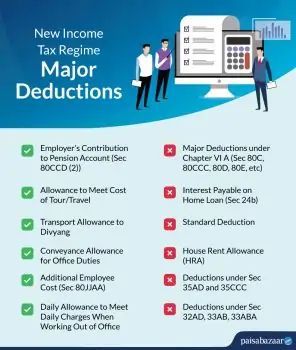
Tax planning is an essential aspect of financial management, especially for salaried individuals in India. Effective tax planning not only reduces your tax liability but also allows you to invest wisely and achieve your financial goals. With a little knowledge and the right strategies, you can optimize your tax savings and make the most of your hard-earned money.
Understanding the Basics of Income Tax in India
The Indian income tax system is progressive, meaning that higher income levels are taxed at higher rates. Salaried individuals are taxed based on their total income, after considering various deductions and exemptions allowed under the Income Tax Act, 1961.
Key Tax Saving Avenues for Salaried Employees
Here are some of the most popular and effective tax-saving avenues available to salaried individuals in India:
1. Section 80C Deductions
Section 80C offers a wide range of investment options that qualify for tax deduction, up to a maximum of ₹1.5 lakh per annum. Some of the common investments under 80C include:
- Employee Provident Fund (EPF)
- Public Provident Fund (PPF)
- Life Insurance Premium
- Equity Linked Savings Scheme (ELSS)
- National Savings Certificate (NSC)
- Tuition Fees for Children
- Home Loan Principal Repayment
Tip: Choose investments that align with your long-term financial goals and risk appetite while maximizing your tax savings.
2. House Rent Allowance (HRA)
If you are paying rent for accommodation, you can claim a deduction for House Rent Allowance (HRA). The amount of HRA exemption depends on several factors, including your salary, the rent paid, and the location of your accommodation.
Tip: Keep proper rent receipts and a rental agreement to support your HRA claim.
3. Leave Travel Allowance (LTA)
Leave Travel Allowance (LTA) allows you to claim exemption for expenses incurred on travel during leave. The exemption is available only for travel within India and is limited to the actual travel cost.
Tip: Keep your travel tickets and boarding passes as proof of travel to claim LTA exemption.
4. National Pension System (NPS)
The National Pension System (NPS) is a voluntary retirement savings scheme that offers tax benefits under Section 80CCD. You can claim an additional deduction of up to ₹50,000 under Section 80CCD(1B) for investments in NPS.
Tip: NPS is a good option for long-term retirement savings with tax benefits.
5. Medical Insurance Premium
You can claim a deduction for medical insurance premium paid for yourself, your spouse, your dependent children, and your parents under Section 80D. The maximum deduction limit varies based on age and the insured individuals.
Tip: Ensure you have adequate medical insurance coverage and avail the tax benefits.
Tax Planning Tips for Salaried Individuals
- Start your tax planning early in the financial year.
- Review your investment portfolio regularly to ensure it aligns with your tax planning goals.
- Keep proper documentation and receipts for all tax-saving investments and expenses.
- Consult with a tax advisor to get personalized tax planning advice.
- Utilize our Income Tax Calculator to estimate your tax liability and plan your investments accordingly.
Conclusion
Effective tax planning is crucial for salaried individuals in India to minimize their tax liability and maximize their financial savings. By understanding the various tax-saving avenues and following the tips outlined in this guide, you can optimize your tax planning and achieve your financial goals with ease.
Disclaimer: Tax laws are subject to change. Consult a qualified tax advisor for personalized advice.